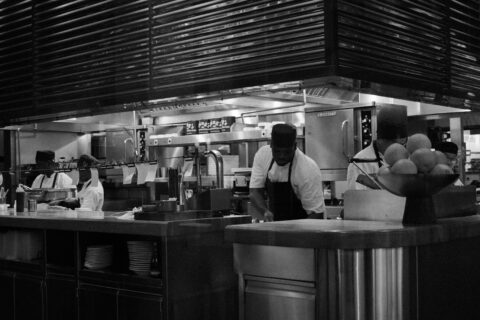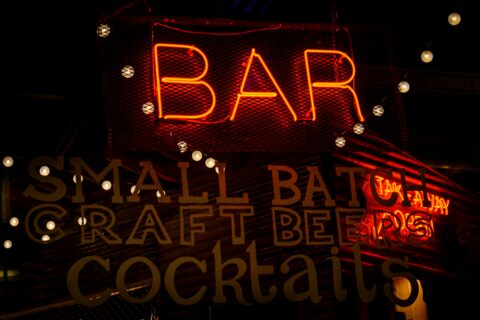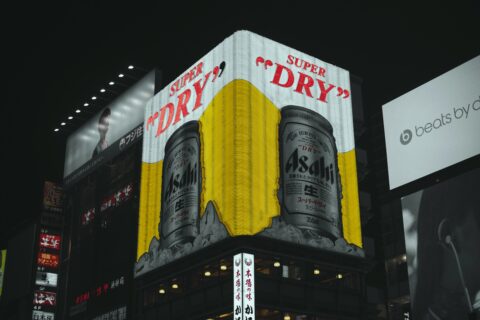Everyone deserves a safe and enjoyable time at a venue. There are a heap of strategies on managing alcohol-related that can help with this. During Licensee training & Online Licensee Training, you will learn about these strategies in greater depth and also how to implement them.
The strategies we will talk about here are:
Refusing Entry
The first strategy is refusal of entry.
As a licensee, you have the right under Section 77 of the Liquor Act 2007 to refuse entry to or remove someone from your venue if they are behaving badly. This right must be used fairly and not in a discriminatory way.
Grounds for refusal or eviction include:
-
Intoxication
-
Violent, quarrelsome, or disorderly behaviour
-
Smoking in smoke-free areas
-
Suspected use or possession of illicit drugs
-
Actions that would cause the licensee to breach liquor laws
If someone refuses to leave, they may be committing an offence and could face a fine for trespassing.
Criteria for Refusal of Entry
Rules should focus on behaviour, not personal characteristics. They should also comply with the NSW Anti-Discrimination Act 1977.
Establish and apply clear, non-discriminatory codes of conduct that outline acceptable behaviour. These should:
It is recommended to display a sign at your venue's entrance, such as: "This venue reserves the right to refuse entry or withdraw permission to remain on the premises at any time."
Ejecting patrons from premises
Similar to the above, licensees, staff, and NSW Police can remove people from licensed premises for reasons including:
-
Intoxication
-
Violent, quarrelsome, or disorderly behaviour
-
Smoking in smoke-free areas
-
Suspected possession or use of illicit drugs
-
Actions causing the licensee to breach liquor laws
Licensee Responsibilities
You must have clear procedures in place so staff know how to manage these situations safely and legally.
Steps for Managing Intoxicated Patrons
If someone appears intoxicated due to alcohol consumption:
Communicating with the Patron
When removing a customer, clearly explain:
-
The reason for their exclusion, using terms from the Liquor Act (e.g., "intoxicated" or "disorderly").
-
They must move more than 50 meters away from the premises.
-
They are banned from the 50-meter vicinity for 6 hours.
-
They cannot re-enter the premises for at least 24 hours.
-
Non-compliance constitutes an offence.
Exceptions to the 50-Meter Rule
Customers with a lawful excuse—such as residing nearby, obtaining transport, or fearing for their safety—are exempt from the rule.
Record Keeping
Managers should record incidents promptly in the incident register to maintain proper documentation.
Fail to quit
Fail to quit refers to a customer who refuses to leave a licensed venue when asked to do so. Fail to quit is an offence under section 77 of the Liquor Act 2007 for failing to leave a licensed premises (of the vicinity of) when requested. If the customer refuses to leave, contact NSW Police for assistance in removing the person.
Police can issue the person found guilty of an offence for non-compliance with the direction to leave with an on-the-spot fine for each offence, with a maximum court fines of 50 penalty units.
Barring customers
While most customers behave responsibly, some may exhibit violent or inappropriate behaviour. Under section 77(3) of the Liquor Act 2007, customers can be temporarily barred for 24 hours for:
-
Intoxication
-
Violent, quarrelsome, or disorderly behaviour
-
Smoking in a smoke-free area
-
Use or possession of prohibited drugs
As a licensee, you can impose longer or indefinite barring periods under common law.
Making Barring Effective
To ensure barring has a meaningful impact, you should:
-
Establish clear guidelines for acceptable and unacceptable behaviour.
-
Define consequences for unacceptable behaviour, including barring terms.
-
Communicate rules and consequences clearly to customers.
-
Apply barring rules consistently and fairly.
Benefits of a Barring Strategy
-
Deters troublemakers and reinforces acceptable behaviour.
-
Enhances safety and creates a welcoming environment.
-
Reduces staff disruptions and improves workplace safety.
-
Contributes to a more enjoyable venue atmosphere.
Anti-Discrimination Compliance
-
Decisions to bar or ban must comply with the Anti-Discrimination Act 1977 (NSW).
-
Rules should be based on behaviour, not personal characteristics (e.g., race, gender).
-
Penalties must be consistent for the same behaviour, avoiding personal bias.
Practical Steps
-
Develop and check barring procedures with a legal advisor to ensure enforceability.
-
Collaborate with local liquor accords to establish consistent barring terms across venues, helping customers understand and comply with expectations.
-
Follow step-by-step guidelines on refusal of entry and patron barring, including advice on legal rights, privacy, and anti-discrimination issues.
Adopt standard barring terms and strategies with other venues in your area through the local liquor accord to maintain a unified approach and improve compliance.
Banning order
A banning order is a formal directive issued by the Authority, prohibiting a specific individual from entering or remaining on licensed premises.
When to Use a Banning Order
Banning orders are suitable when:
-
A person repeatedly disregards imposed barring or banning periods.
-
No liquor accord exists to enforce multi-venue barring.
-
Venues cannot agree on barring or banning a customer.
-
The individual’s behaviour has been disruptive enough to warrant legal action.
Who Can Apply for a Banning Order?
Applications can be made by:
Penalties for Non-Compliance
A person under a banning order must not enter, attempt to enter, or stay on licensed premises. A violation can result in a maximum penalty of 50 penalty units.
Under the Liquor Act 2007, patrons can be banned for up to 6 months across multiple licensed venues for repeated intoxication, violence, or disorderly behaviour in or near licensed premises.
In Sydney CBD and Kings Cross precincts, NSW Police can issue temporary banning orders lasting up to 48 hours, while the Authority can impose long-term banning orders of up to 12 months for serious cases.
Place restriction order
As a last resort, you can ask NSW Police to apply for a place restriction order under the Crime (Sentencing Procedure) Act 1999. This can ban a person from certain areas for 12 months if they’ve been sentenced to at least 6 months in jail.
For more details, talk to your local NSW Police licensing officer.
If you want to know more about Licensee Training check out our Licensee Training Guide.





